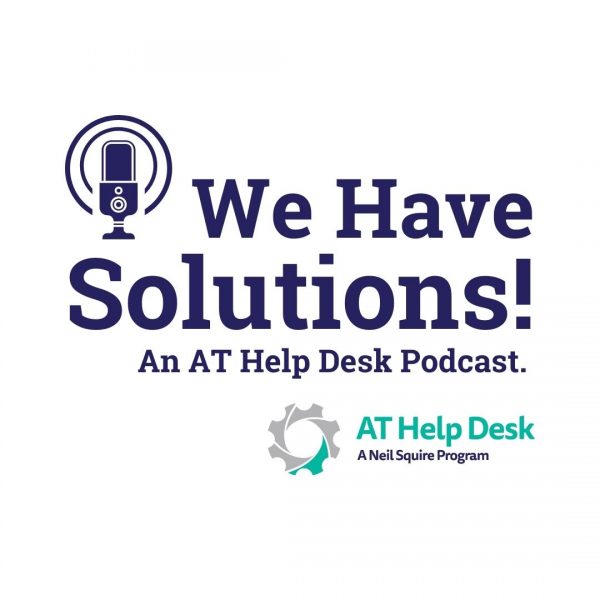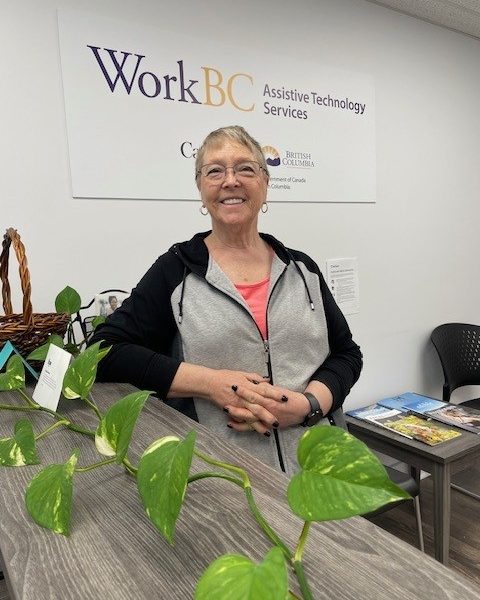Miro: An Accessible Workspace App

If you need to collaborate on a project virtually, it’s hard to beat a workspace app. These apps are ideal because they provide a virtual whiteboard that allows users to plan and flesh out projects remotely, allowing members from all over the world to work together in real time. In fact, even for groups that are able to meet in-person, I can’t be convinced that this approach isn’t far more efficient, not to mention accessible, than a traditional, in-person whiteboard approach to project planning.
Miro is one of many of such apps, but it deserves some special attention today because of how seriously they take accessibility. The app is constantly being tested and audited by screen reader users to ensure that the app is as accessible as possible. It is also packed with helpful accessibility features.
WorkBC Assistive Technology Services Helps Mitra Get the Hearing Aids She Needs in Her Job Search

Mitra is currently looking for work, and she has hearing loss. Her WorkBC Centre referred her to WorkBC Assistive Technology Services for help funding the hearing aids she needs for the job search process and in her future employment. She applied and was quickly approved.
“The Assistive Technology Services program helped me by providing funding for a hearing aid. This accommodation has improved my ability to communicate effectively,” she shares.
We Have Solutions! – Episode 38: Miro App, Mac Accessibility Updates, and Brain Computer Interfaces

In this episode, we talk about the highly accessible Miro app, Mac accessibility updates, and finally, we explore the possibilities of assistive technology bolstered by brain-computer interfaces, including Neuralink’s recent milestone, where a patient was able to draw an image using only their brain.
“I Look Forward to My Workday,” Gloria’s New Hearing Aids Make a Big Difference on the Job

Gloria works as a pharmacy assistant, handling everything from helping customers get their prescriptions to stocking the shelves. Recently, her hearing aids died, making it much more difficult to do her job.
Her hearing aid specialist referred her to WorkBC Assistive Technology Services for help funding a new set of hearing aids. Assistive Technology Services staff walked her through every step of the process, ensuring that she got the hearing aids she needs for work.
WorkBC Assistive Technology Services Helps Donna Better Serve Customers

Donna works in a busy pharmacy that prides itself on its customer service. She helps customers find items, discusses the benefits of different products, and tries to make them feel welcome and comfortable in the store. However, her hearing loss was making it more difficult to help customers.
“I had issues hearing their questions and comments over the sounds that occur in a public place,” she shares. “I was always asking them to repeat their question, which when someone was in a hurry could irritate them. I also had to ask my co-workers to repeat themselves for the same reasons. I have found that most people are quite considerate, but as the hearing loss progressed, it became more of an issue for me.”
New Hearing Aids Helps Perez Re-Gain Her Self-Confidence

Perez works as a part-time manager at a fast-food restaurant. Working in a busy kitchen environment with a lot of noise, she found her hearing loss was affecting her ability to work.
“I was diagnosed with a bilateral, moderate-to-moderately severe sensorineural hearing loss, which has a big impact on my work,” she explains. “My self-confidence was affected as I can not work properly. I need to ask my colleagues what they were saying and sometimes I [would] just guess what they really want to say, which [would] lead to a wrong decision or wrong task.”
New Hearing Aids Help Ali Communicate at Work

At 71 years old, Ali still works as a manager and estimator for a construction company in Vancouver. However, his hearing loss was making it difficult to communicate on the job. Through WorkBC Assistive Technology Services, he received funding to help cover the cost of the hearing aids he needs to keep working.
“[The] Assistive Technology Services program assisted me to purchase suitable hearing aids to keep my job,” he shares.
We Have Solutions! – Episode 37: Notebook LM, Mac Accessibility, and the Future of AI

On our latest episode of “We Have Solutions,” Seaver Stafford is joined once again by Nakia Singh, and they talk Mac accessibility, do a quick review of Notebook LM, and chat a bit about the future of AI.
WorkBC Assistive Technology Services “A Great Help” for Ronald

Ronald is an insurance estimator. His work requires a lot of communication, both in-person and over the phone.
“[I have] hearing loss, which resulted in missing information (sometimes critical) during calls or in-person meetings, [and I’m] always having to ask people to repeat themselves which slowed the workflow,” he shares.
“[It’s] Much Easier to Do My Job and Communicate With Customers”

After a long career as a service tech working on cars, Robert now works full-time driving the customer shuttle at a car dealership in Kamloops.
“I was suffering hearing loss as a result of working in a shop for 50 years, and I was having trouble hearing directions from customers I was driving,” he shares.



